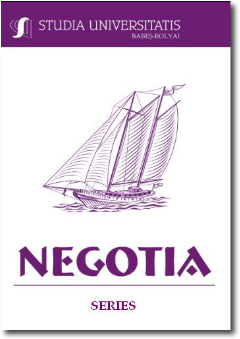THE PROCESS OF ATTRACTING EU FUNDS BY SMES: LESSONS FROM THE PAST
THE PROCESS OF ATTRACTING EU FUNDS BY SMES: LESSONS FROM THE PAST
Author(s): Nicolae MarinescuSubject(s): Economy
Published by: Studia Universitatis Babes-Bolyai
Keywords: SMEs; European Union; EU funds; projects.
Summary/Abstract: The European Union (EU) supports small and medium-sized enterprises (SMEs) through various programmes of financing. This paper starts by reviewing the recent literature related to the topic of EU funds accessed by SMEs. By means of a broad classification, the second section tries to shed a light in the maze of national and EU funding opportunities currently available to Romanian SMEs in particular. With EU-integration, Romania gained access to EU funding for 2007-2013. Inside this period, the main programme of EU funds oriented towards SMEs was the Operational Programme called “Increase of Economic Competitiveness” (CCE). As Romanian SMEs lag behind their European counterparts in several indicators, such as productivity, value-added, or density, the matter of attracting EU funds in the SME sector has become of paramount importance. The third section of the paper analyzes how Romanian SMEs fared in absorbing the funds available through the CCE programme. Although the absorption rate for private firms was higher compared to public institutions, overall it turned out extremely disappointing judging by the necessary funding and the lost opportunities. The causes for the low absorption rate are investigated further. These can be separated in two categories: internal causes, such as lack of co-financing, insufficient managerial skills, no usage of consulting companies; and external causes, e.g. massive bureaucracy in the initial phase, high guarantees required by banks, delays in evaluating applications. The fourth section of the paper analyses by means of two case studies of SMEs in the Centre Region the main features of the project management related to writing applications for non-refundable financing. The concluding section of the paper comprises some conclusions and lessons to be learnt to avoid the difficulties encountered by Romanian SMEs in the process of submitting applications for EU funding especially for the financial perspective 2014-2020.
Journal: Studia Universitatis Babes Bolyai - Negotia
- Issue Year: 58/2013
- Issue No: 4
- Page Range: 53-67
- Page Count: 15
- Language: English

